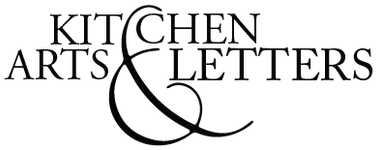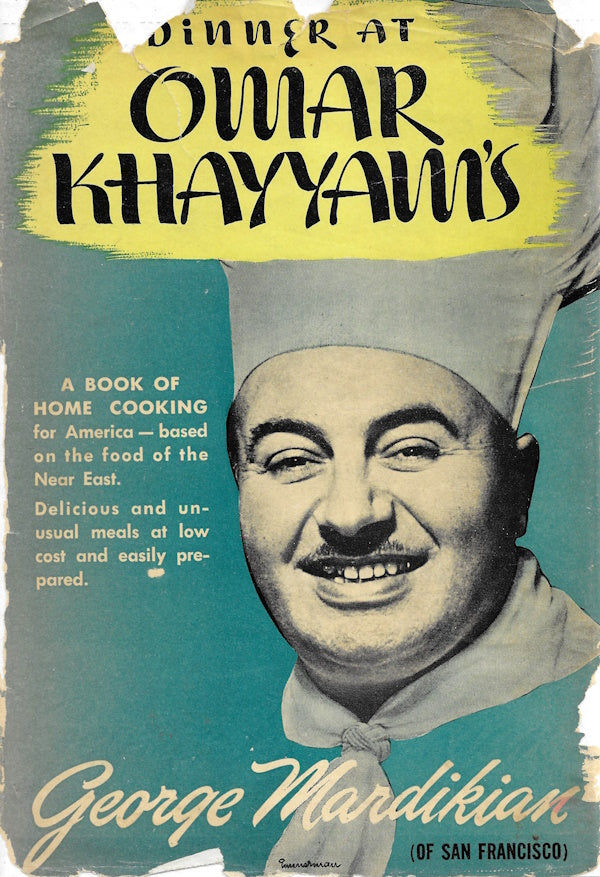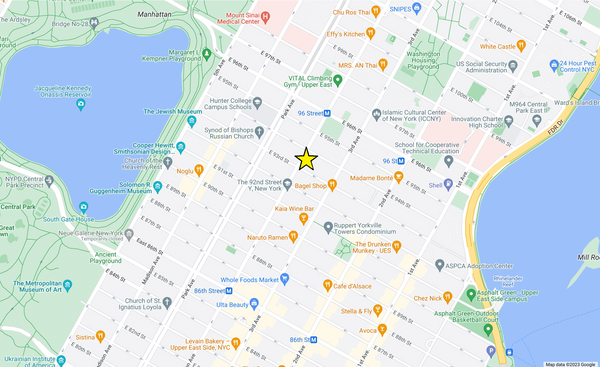OP: Dinner at Omar Khayyam's
Viking Press, 1944. Good in Good Minus jacket. First printing.
A survivor of the Armenian genocide, George Mardikian (1903–1977) escaped a prison labor camp by pretending to be a US citizen. He later said, “I became an American before I became an American,” and remained earnestly faithful to his new home.
After reaching Ellis Island, he took a train cross-country to San Francisco, eating only potato salad along the way for eight days, since—he claimed—it was the only item he could identify on the menu. It wasn’t even good potato salad, he reported, but he did discover a passion for showing Americans how to eat well and economically, even during the scarcity of the Great Depression and the rationing of World War II.
Starting as a dishwasher at a coffee shop, Mardikian worked his way up through the ranks at various restaurants. In 1938 he opened Omar Khayyam’s, an Armenian-American restaurant named for the epicurean Persian poet. Endowed with enthusiasm, charm, and a zest for publicity, he soon became a “personality.”
Mardikian was also an unabashed patriot of both the US and his Armenian homeland. Motivated by his experience with war and hunger and, exploiting his prominence, he became involved in charitable causes, serving also as food consultant to the Quartermaster General of the US Army. For this, he received the Presidential Medal of Freedom.
Published in 1944, Dinner at Omar Khayyam’s was Mardikian’s ode to what made him and his restaurant so famous—simple Armenian food, frugally and healthfully prepared with the American palate in mind. Vegetables, both fresh and traditionally pickled, play a prominent role. Other recipes include havabour—wedding soup—and chicken tchakhokhbelli—a Georgian preparation with paprika and sherry that Mardikian favors as the only way to do justice to the bird. There are piroshki, desserts—such as a festive, citrusy plum pudding—and many traditional breads including the flatbread lavash and a variety of breakfast loaves known as gatahs.
We are offering a first printing in Good condition. The book block and case have suffered liquid damage along the top and fore edge, the discoloration fairly minimal and not imposing on the text at all. The jacket is present though heavily chipped and missing paper from about half of the spine. It has been mylared to protect it from further damage.

